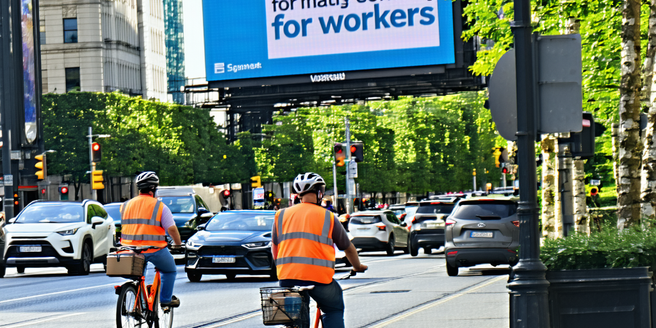
Understanding Class Actions
Class actions are legal procedures that enable a group of people with similar grievances to file a lawsuit collectively against a defendant. This form of legal action is utilized when individual claims might be too small to warrant separate filings but still represent a significant collective interest. By banding together, plaintiffs can share litigation costs, streamline the legal process, and exert greater leverage against a defendant. Class actions require court certification to ensure commonality of claims, adequacy of representation, and numerosity of class members. This legal tool is vital for addressing issues affecting large groups, promoting accountability, and facilitating legal redress without overburdening the judicial system.
The Rise of the Gig Economy
The gig economy represents a labor market characterized by short-term contracts or freelance work as opposed to permanent jobs. This mode of work has surged in popularity due to technological advancements, offering flexibility and autonomy for workers. Companies benefit from reduced overhead costs and the ability to scale services quickly. However, this rise brings challenges regarding employment rights, benefits, and classification of workers. Gig platforms like Uber, Lyft, and TaskRabbit exemplify this trend, reshaping how society views work, income, and job security. Critics argue that gig work often lacks stability and protections, raising discussions around fair compensation and regulatory frameworks.
Legal Challenges Faced by Gig Workers
Gig workers encounter numerous legal challenges, predominantly concerning their classification as independent contractors versus employees. This distinction impacts eligibility for benefits like health insurance, retirement savings, and unemployment protection. Many gig workers argue that they are misclassified, leading to litigation aimed at securing rightful employment rights and benefits. Furthermore, there are issues like wage theft, lack of paid leave, and insufficient workplace protections. The evolving nature of gig work calls for adaptive legal frameworks to safeguard worker rights while respecting the flexibility that defines this industry. These challenges continue to shape the conversation around labor laws and gig economy regulations.
Notable Class Action Cases in the Gig Economy
Several class action lawsuits have highlighted legal issues within the gig economy, setting precedents and sparking policy debates. One notable case involved drivers for ride-sharing companies who contended their misclassification as independent contractors deprived them of employee benefits. Settlements or court rulings in such cases often bring policy changes, influencing how gig companies operate. Another significant case challenged a delivery service over alleged wage theft and unfair labor practices. These class actions not only seek justice for affected workers but also aim to reform business practices and ensure compliance with labor standards, shedding light on systemic issues within the gig sector.
Impacts of Class Actions on Employers and Workers
Class actions in the gig economy can significantly affect both employers and workers. For employers, such lawsuits often result in hefty financial settlements and reshape business operations, requiring stricter adherence to labor laws and policies. They can also lead to reputational damage and increased scrutiny. For workers, class actions provide a crucial mechanism to claim unpaid wages, benefits, or seek redress for grievances. These legal battles can lead to improved working conditions and clearer job classifications. However, they can also result in unintended consequences, such as reduced job opportunities if companies opt to limit hiring to avoid legal complexities.
Future of Class Actions in Gig Work
The future of class actions in gig work hinges on ongoing legal and regulatory developments. As the gig economy continues to evolve, so will the legal strategies employed to address grievances. Emerging technologies and new business models may introduce novel legal complications, necessitating adaptive approaches. Court rulings and legislative changes will play pivotal roles in shaping the landscape, potentially redefining worker classifications and their rights. Stakeholders, including policymakers, companies, and workers, will need to engage in dialogues to balance innovation with fairness. The trajectory of class actions will likely influence the broader discourse on labor rights in the digital age.
